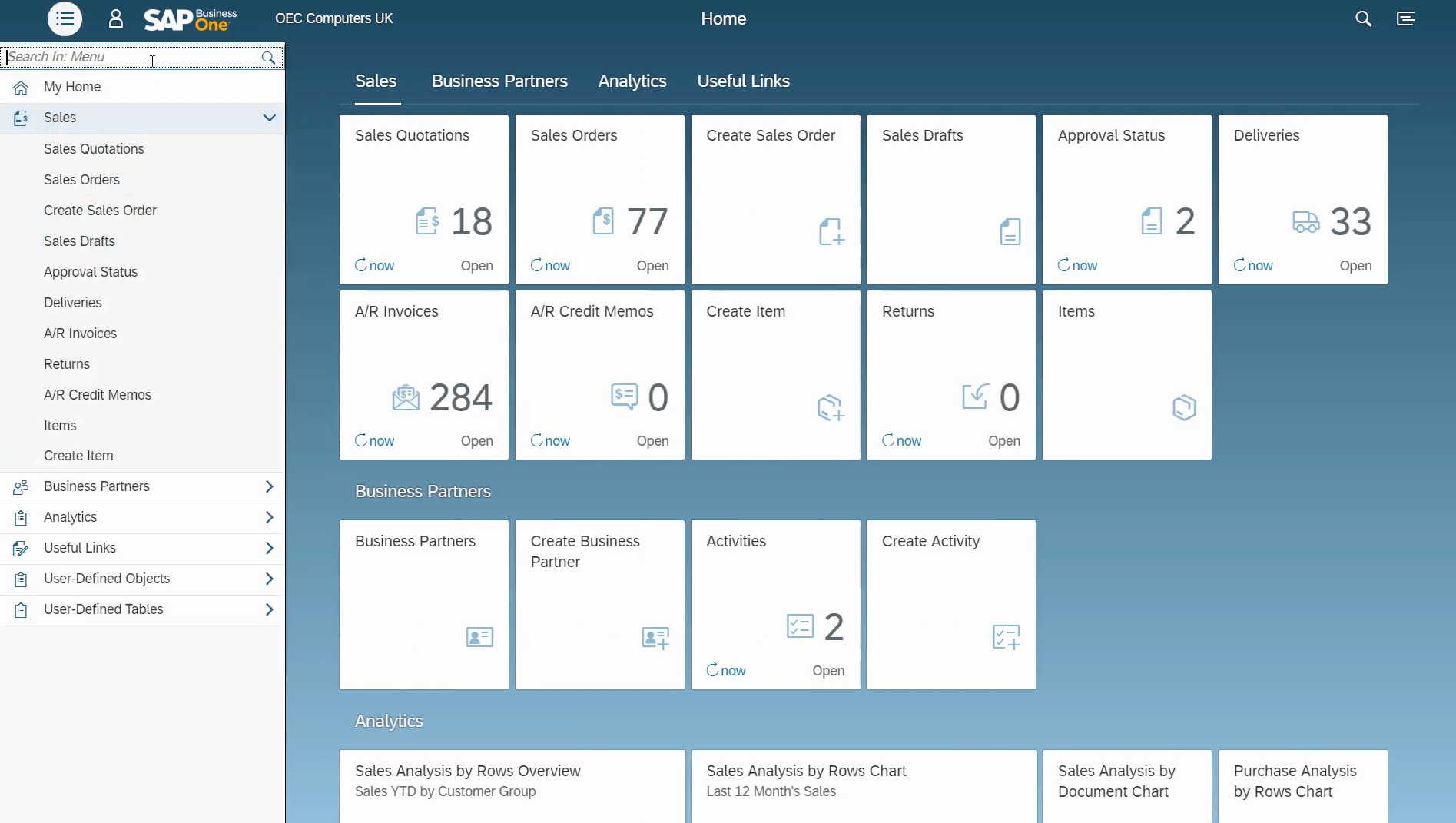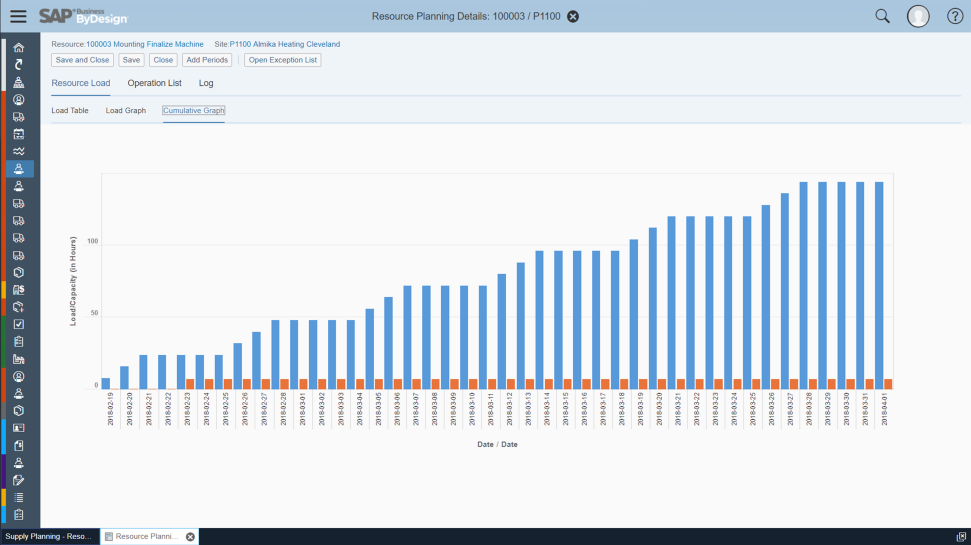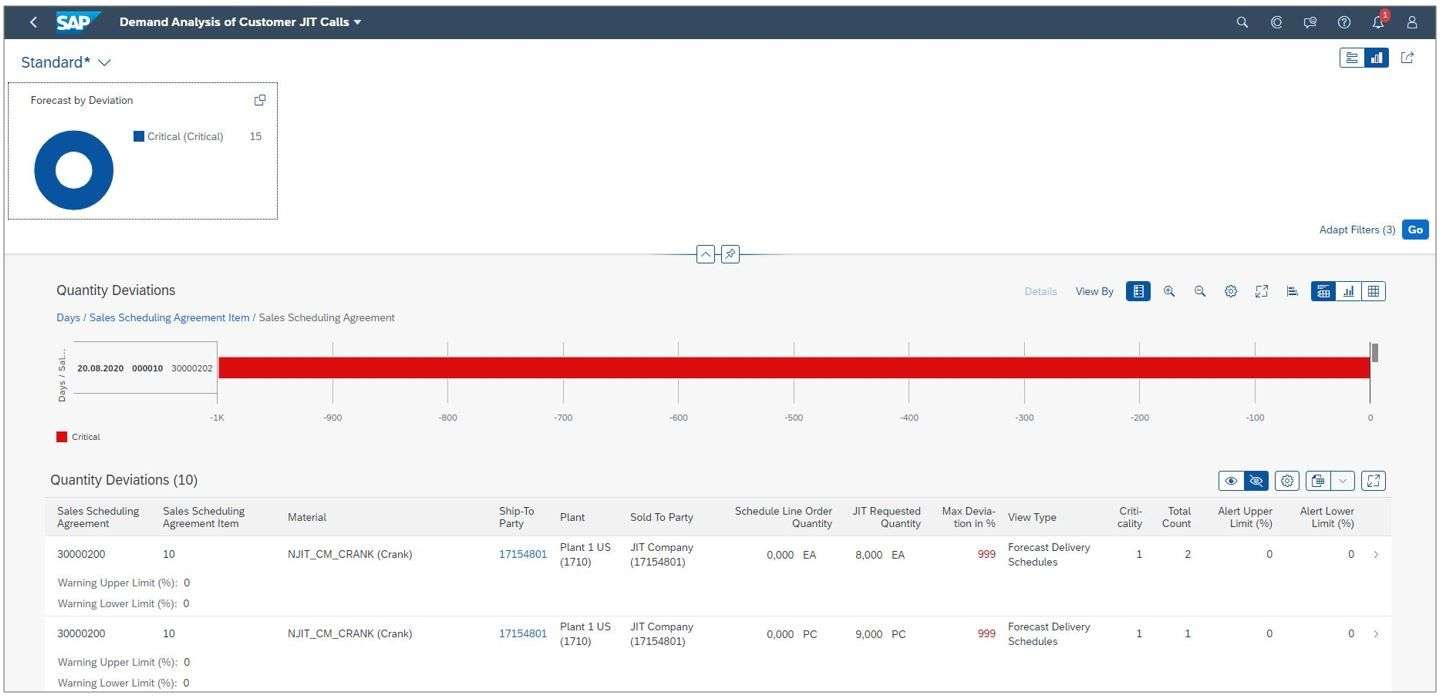If you're considering implementing SAP ERP software such as SAP Business One, SAP Business ByDesign or SAP S/4 HANA then you need to be prepared. In this guide, we'll talk about SAP ERP implementation, how to prepare for it and how to make sure you deliver your implementation on time and on budget.
What is SAP ERP implementation?
SAP ERP implementation is the process of configuring and customizing SAP enterprise resource planning software to meet your business needs.
It involves multiple steps including preparation, design, build, testing, go-live and support. The duration of a SAP ERP implementation can depend upon various factors including the SAP ERP solution you choose to implement, as well as the particular characteristics of your ERP project.
In the following sections, we'll explore the different options around SAP ERP implementation including the different SAP ERP software products, frequently asked questions and more.
SAP ERP Software:
There are multiple SAP ERP products to choose from which are designed for companies at different stages of their journey. Which SAP ERP product you choose will have a big impact on how you embark on your SAP ERP implementation journey.

SAP Business One is SAPs entry level ERP software and is designed for small and medium sized businesses in a variety of industries including retail, distribution, professional services, manufacturing, pharmaceuticals and more.
SAP B1 is available as a Cloud or On-Premise ERP system and has functionality cover financial management & accounting, inventory management, production and supply chain, project management and beyond.
Full SAP Business One Guide >>>

SAP Business ByDesign is a Cloud ERP from SAP which is designed for medium sized and midmarket businesses. ByDesign is a completely SaaS ERP solution and is often considered SAPs answer to Netsuite.
Business ByDesign includes an end to end business suite in a box range of functionality covering financials, inventory, supply chain and much much more.
Full SAP Business ByDesign Guide >>>

SAP S/4 HANA is the flagship ERP system from SAP and is designed to fit the needs of fast growing midsized companies and large enterprises and multinationals. It is the successor of the extremely popular and well used ERP solution SAP ECC 6.0, coming with a new user interface, database and much more.
S/4 HANA is available On-Premise but also as a Cloud ERP solution via the new offering from SAP known as RISE.
Full SAP S/4 HANA Guide >>>
How long does SAP ERP Implementation take?
SAP ERP implementation can take anywhere from weeks to several years.
This will largely depend on which SAP ERP system you choose to implement, the size of your company and your ERP project scope.
Typically, small and medium sized businesses will choose to implement SAP ERP software such as SAP B1 or SAP Business ByDesign. These SAP ERP products are typically implemented quickly, within 4-6 weeks or 3-12 months depending on how complex your project is.
Larger businesse typically undertake SAP ERP implementations for SAP S/4 HANA and these projects typically take 6-12 months, but can take several years.
How much does SAP ERP Implementation cost?
SAP ERP implementation costs can range from $50,000 to $5M or much much more.
Again this is largely down to the SAP ERP product you choose.
SAP Business One & SAP Business ByDesign implementation costs are typically on the lower end, with costs ranging between $50,000 to $250,000, broadly speaking.
On the other hand, SAP S/4 HANA implementations are generally more complex and implementation costs can range from $200,000 and beyond.
If you're wondering about the factors that can reduce your ERP implementation cost, then check out our dedicated post.
SAP ERP Implementation Partners
If you're about to start an SAP ERP implementation, then don't do it alone.
SAP has hundreds of worldwide implementation partners that specialize in assisting you with configuring your SAP ERP system according to your business requirements. Using an SAP implementation partner will greatly increase your chances of successfully implementing your new ERP system. Typically, SAP implementation partners will specialize in one or several SAP ERP systems and industries.
For example, some SAP implementation partners are specialized just in SAP Business One with a focus on retail and distribution, whereas the larger systems integrators such as CapGemini and Accenture tend to focus on larger SAP implementation projects for SAP S/4 HANA.
When evaluating SAP ERP software, its equally important to thoroughly evaluate your chosen SAP partner and potentially evaluate 2-3 to ensure you select the one with the best fit to your industry, requirements and company culture.
SAP ERP Implementation Best Practices
Fit to Standard & SAP Best Practices
In the old days, SAP ERP products such as SAP ECC 6.0 were akin to a set of lego.
You had all the building blocks and could build whatever systems and processes you wanted. Typically an SAP ERP project was delivered over five or more phases including:
1) Project Preparation
2) Business Blueprinting
3) Realization
4) Final Preparation
5) Go-Live & Support
This approach was extremely flexible, but also a very expensive way of implementing an ERP product and it created a lot of long term IT debt and complexity.
Fast forward to today and almost all SAP ERP products, particularly SAP S/4 HANA & SAP Business ByDesign were designed around best practice, pre-defined processes that come pre-populated within these systems.
This means that process such as procure-to-pay, and lead-to-cash don't need to be designed from the ground up every time you take on a SAP ERP implementation. Instead, you can spin up your new SAP ERP system and start to use predefined SAP best practice systems out of the box.
This doesn't mean that you can't customize or configure your SAP ERP implementation to your own requirements, but instead that you have a comprehensive base from which to start.
In fact, you will typically find that any good SAP ERP implementation partner will seriously challenge any attempts to heavily configure or customize your ERP system as this can quickly lead to ERP implementation risks and delays.
Communication & Change Management is Crucial
If you choose to follow the recommended path of adopting SAP 'best practice processes', then it's likely your business will need to change the way in which it operates as a result.
Although this approach can be the fastest method of implement SAP ERP software, it can cause significant disruption within your business.
For many long established companies with experienced employees that have long tenures within your company, changing processes can be worrying and difficult.
As a result, it is very important to capture the changes that will be brought about by a new ERP system and communicate the benefits and changes accordingly.
Good change management and communication will be the difference between ERP project success and adoption, or failure.
Controlling SAP ERP Implementation Scope
In the same vein as fitting your SAP ERP implementation to SAP out of the box processes, it's also crucial to ensure you control your SAP ERP implementation scope. Failing to do so can dramatically increase the cost and timeline of your ERP implementation.
It is quite common for SAP ERP projects to be implemented in phases or multiple steps. For example, with finance and accounting implemented first, then a go-live, followed by implementation of further modules over time.
SAP ERP Implementation Case Studies
Nike
Nike is one of the most famous SAP implementation case studies, but not for the right reasons. Nike reportedly spent $400M on their SAP ERP implementation, but also suffered from $100M in lost sales and a share price dip of 20%.
What can we learn about Nike's SAP implementation? Those close to the project suggest:
1) Nike failed to implement proper change management processes and controls.
2) Nike didn't leverage a SAP implementation partner in the process.
3) Nike didn't thoroughly evaluate and understand the technology they chose to implement and implemented a legacy, unstable version.
Topcon
Topcon implemented SAPs flagship product, S/4 HANA Cloud across nine countries with finance and accounting, inventory management and supply chain.
What benefits did Topcon realise from implementing SAP ERP?
SAP ERP Implementation Benefits
- 25% reduction in time for full regional consolidated month-end closing
- 42% of sales orders automated in one country, up from 18%, and increasing rapidly
- 500% expanded user base since implementing SAP Commerce Cloud